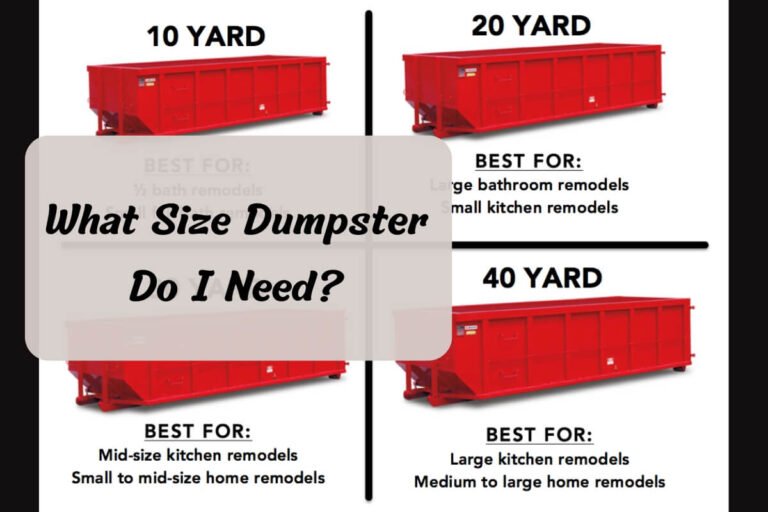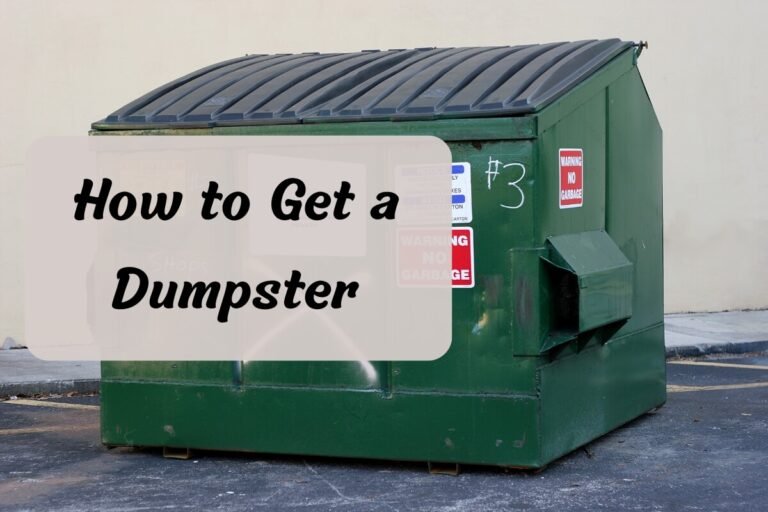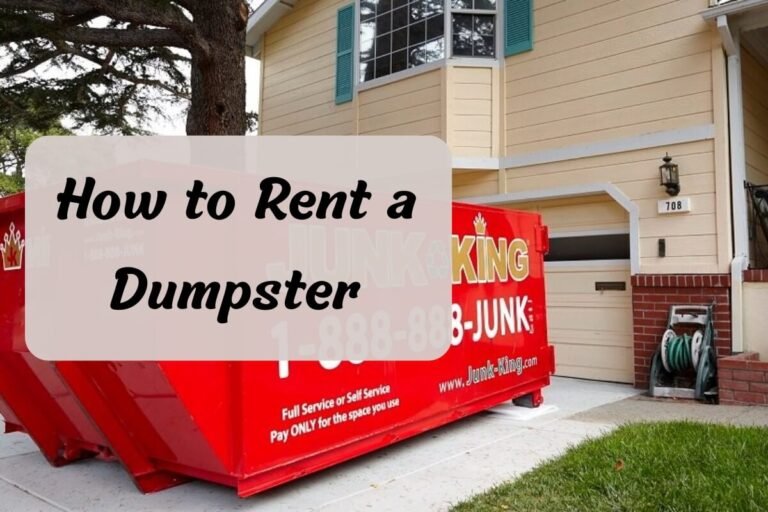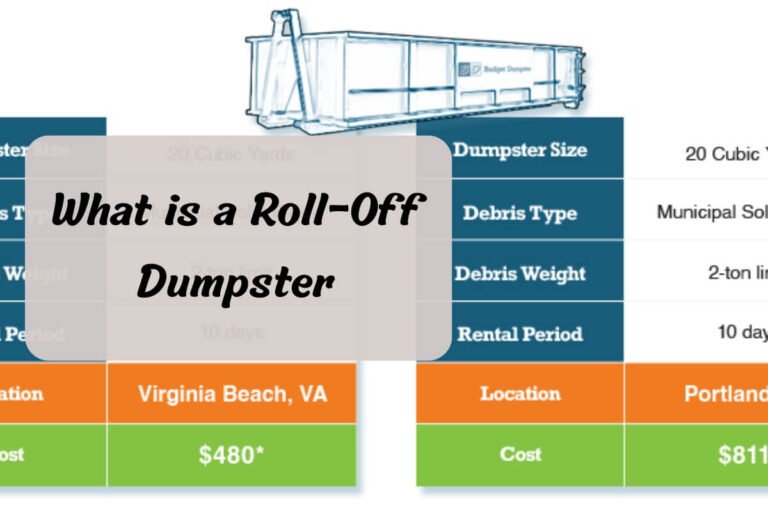How to Stop Illegal Dumpster Use: A Comprehensive Guide
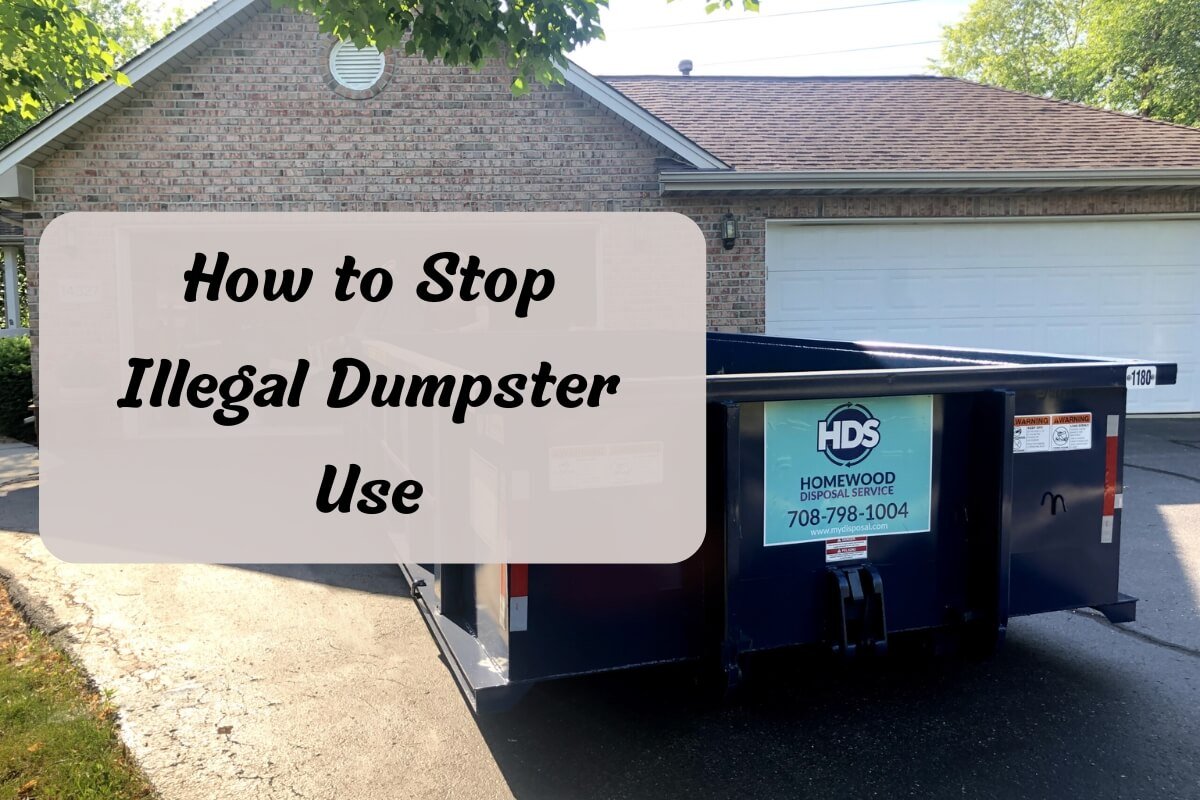
Have you ever rented a dumpster for a home renovation or clean-up project, only to find it filled with trash that isn’t yours? It’s incredibly frustrating when neighbors or trespassers illegally dump their waste in your rented dumpster. Not only is it an inconvenience, but it can also lead to unexpected fees and legal issues. In this detailed guide, we’ll explore proven strategies to prevent illegal dumpster use on your property.
Dealing with unauthorized dumpster use can be a hassle, but it’s crucial to address the issue head-on. By implementing the right precautions, you can protect your investment and avoid potential fines or legal troubles. Let’s jump into the topic and understand what illegal dumpster use entails, why it’s essential to prevent it, and practical tips to keep your dumpster secure.
What is Illegal Dumpster Use?
Illegal dumpster use, also known as illegal dumping or fly-tipping, refers to the act of disposing of waste in a dumpster or on a property without the owner’s permission. When you rent a dumpster, it becomes your private property for the duration of the rental period. Anyone who uses it without your consent is essentially committing theft of service since you’ve paid for the dumpster rental fees.
Illegal dumping can have severe consequences. If someone dumps a significant amount of waste in your dumpster, it can cause the weight limit to be exceeded, leading to additional charges from the rental company. Furthermore, there’s a risk of prohibited or hazardous items being dumped, which can result in hefty fines and legal troubles.
Why It’s Important to Prevent Illegal Dumpster Use
Preventing illegal dumpster use is crucial for several reasons:
- Avoid Overage Fees: Dumpster rental companies impose weight limits on their dumpsters. If your dumpster exceeds the weight limit due to unauthorized use, you may be charged expensive overage fees.
- Protect Against Hazardous Materials: When others dump their waste in your dumpster, you have no control over the type of materials they discard. They may unknowingly (or intentionally) dispose of hazardous items like chemicals, batteries, or paints, which can lead to additional disposal fees or legal consequences.
- Maintain Control: By preventing illegal dumpster use, you maintain complete control over what goes into your rented dumpster. This ensures that you don’t end up paying for someone else’s waste or dealing with the hassle of sorting through unauthorized items.
- Avoid Legal Issues: In some areas, illegal dumping is considered a criminal offense, and you could be held responsible if it occurs in your rented dumpster. Preventing unauthorized use helps you steer clear of potential legal troubles.
Now that we understand the importance of stopping illegal dumpster use, let’s explore practical strategies to keep your dumpster secure.
Secure Your Dumpster Location
One of the most effective ways to deter illegal dumpster use is to make it physically challenging for trespassers to access your dumpster. Here are some location-based strategies to consider:
Place in Enclosed/Fenced Area
Place your dumpster in a secure area, like a fenced yard or locked building, to prevent unauthorized access.
Avoid Street Placement
Placing your dumpster on the street or in a public area increases its visibility and accessibility, making it more susceptible to illegal use. If possible, situate the dumpster on your private property, away from high-traffic areas.
Use Locks or Gravity Bars
Many dumpster rental companies offer additional security features like locks or gravity bars. These mechanisms prevent unauthorized individuals from opening or accessing the dumpster, providing an extra layer of protection.
Make Dumpster Less Accessible
Even if you can’t completely enclose your dumpster, there are ways to make it less accessible and less appealing for illegal dumping.
Cover with Tarp When Not in Use
When you’re not actively using the dumpster, cover it with a tarp and secure it with bungee cords or weights. This added step makes it less convenient for trespassers to dump their waste, as they would need to remove the cover first.
Keep Rental Period Short
The longer a dumpster sits on your property, the more opportunities there are for illegal dumping. Try to complete your project as quickly as possible and schedule prompt pickup by the rental company to minimize the potential for unauthorized use.
Use Lighting to Increase Visibility
Position your dumpster in a well-lit area, either near existing streetlights or by setting up temporary lighting. The increased visibility can deter trespassers from attempting to illegally dump waste in your dumpster.
Use Clear Messaging
In addition to physical barriers, clear messaging can be an effective deterrent against illegal dumpster use. Here are some messaging strategies to consider:
Post “No Trespassing” Signs
Place signs around your dumpster that clearly state “No Trespassing” or “Private Dumpster – No Illegal Dumping.” These signs serve as a warning and reminder that unauthorized use is not permitted.
Notify Neighbors You’ve Rented Dumpster
If you’re on friendly terms with your neighbors, consider informing them that you’ve rented a dumpster for a specific project. Mention the importance of not using it without your permission and the potential consequences of illegal dumping.
Include Reporting Details on Signs
On your “No Trespassing” signs, consider including details on how to report any instances of illegal dumping. This can discourage potential trespassers who may fear being caught and reported to the authorities.
Surveillance and Monitoring
Surveillance and monitoring can be powerful deterrents against illegal dumpster use, as well as provide evidence in case of violations.
Install Security Cameras
Consider installing security cameras near your dumpster location. The presence of cameras can discourage potential trespassers, and any footage captured can be used as evidence if illegal dumping occurs.
Use Fake Dummy Cameras
If installing real security cameras is not feasible, you can opt for fake dummy cameras as a more cost-effective deterrent. The appearance of surveillance may be enough to discourage illegal dumpster use.
Check Dumpster Daily for New Debris
Make it a habit to check your dumpster daily for any new debris or waste that you didn’t place there. If you notice unauthorized items, take action immediately by removing them or contacting the authorities, if necessary.
Take Legal Action If Needed
In some cases, despite your best efforts, illegal dumpster use may still occur. If you catch someone in the act or have evidence of unauthorized dumping, you may need to take legal action.
Document With Photos/Videos
If you witness illegal dumping or find unauthorized waste in your dumpster, document it with photos or videos. This evidence can be invaluable if you decide to pursue legal action or report the incident to the authorities.
Report to Authorities
Illegal dumping is often considered a misdemeanor or even a criminal offense in some areas. If you have evidence of illegal dumpster use on your property, report the incident to the relevant authorities, such as the local police or waste management department.
Pursue Fines for Theft of Service
Depending on your local laws, you may be able to pursue fines or legal action against individuals who illegally used your rented dumpster. This can be considered theft of service since you paid for the dumpster rental.
Tips for Sharing Dumpster Responsibly
In some cases, sharing a dumpster with neighbors can be a cost-effective and convenient solution, as long as it’s done responsibly and with clear agreements in place.
Go in With Neighbors to Split Costs
If you have a smaller project and know your neighbors may also need a dumpster, consider proposing to share the rental costs. This can save everyone money while ensuring the dumpster is used legally and responsibly.
Establish Written Use Agreement
If you decide to share a dumpster with neighbors, it’s crucial to establish a written agreement outlining the terms of use. This should include details such as the allowable items, weight limits, and each party’s financial contribution.
Designate Allowed Items/Weight Limits
Within the written agreement, clearly specify the types of items that can be disposed of in the shared dumpster, as well as the weight limits imposed by the rental company. This helps prevent unauthorized or hazardous materials from being dumped, which could lead to additional fees or legal issues.
In Summary
Dealing with illegal dumpster use can be a frustrating and costly experience, but it’s a problem that can be effectively addressed with the right strategies. By implementing measures such as securing your dumpster location, using clear messaging, and employing surveillance and monitoring techniques, you can significantly reduce the risk of unauthorized dumping on your property.
Illegal dumpster use can cause unexpected fees, legal troubles, and hazardous material issues. Take proactive steps to prevent this and don’t hesitate to take legal action if needed.
Being vigilant and taking precautions can save you time, money, and stress. Following these tips ensures your rented dumpster is used correctly, letting you focus on completing your project without complications.
If you find yourself in a situation where sharing a dumpster with neighbors is a viable option, establish clear written agreements and guidelines to ensure responsible and legal use. Communication and cooperation can go a long way in minimizing conflicts and ensuring a smooth and hassle-free experience for all parties involved.
Whether you’re tackling a DIY project or hiring professionals, taking proactive measures to stop illegal dumpster use is an essential step in protecting your investment and maintaining a safe and lawful environment on your property. Don’t let unauthorized dumping ruin your plans – take control and implement these proven strategies today.

